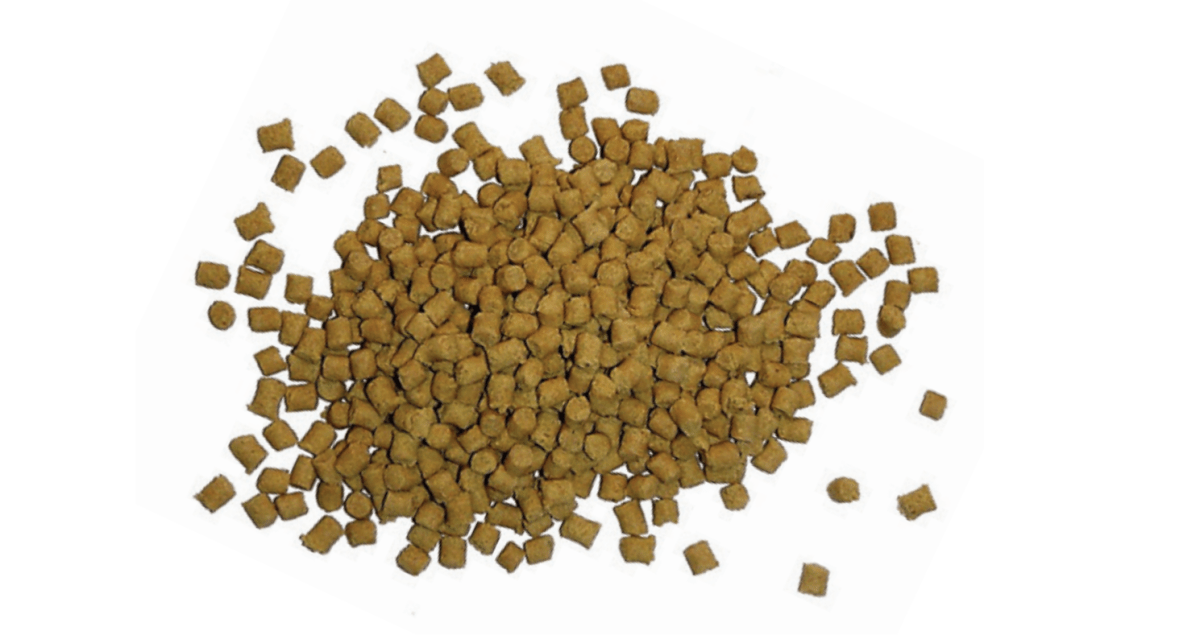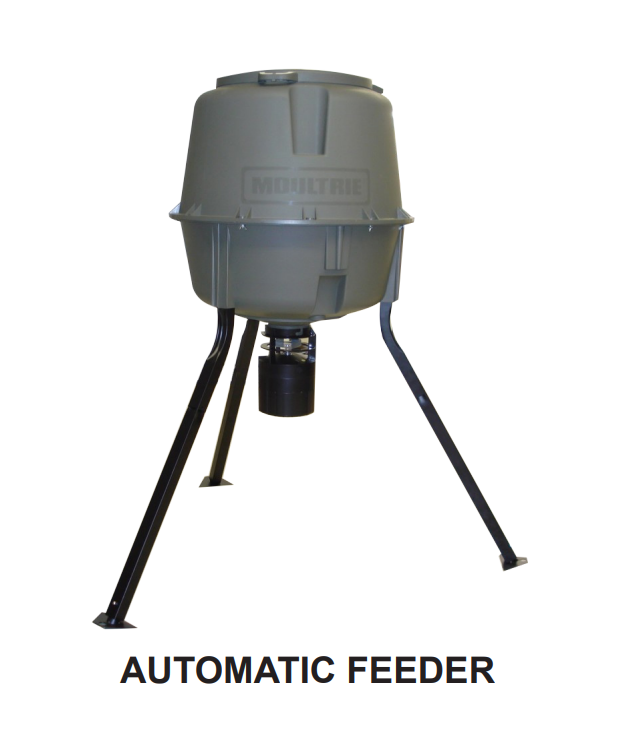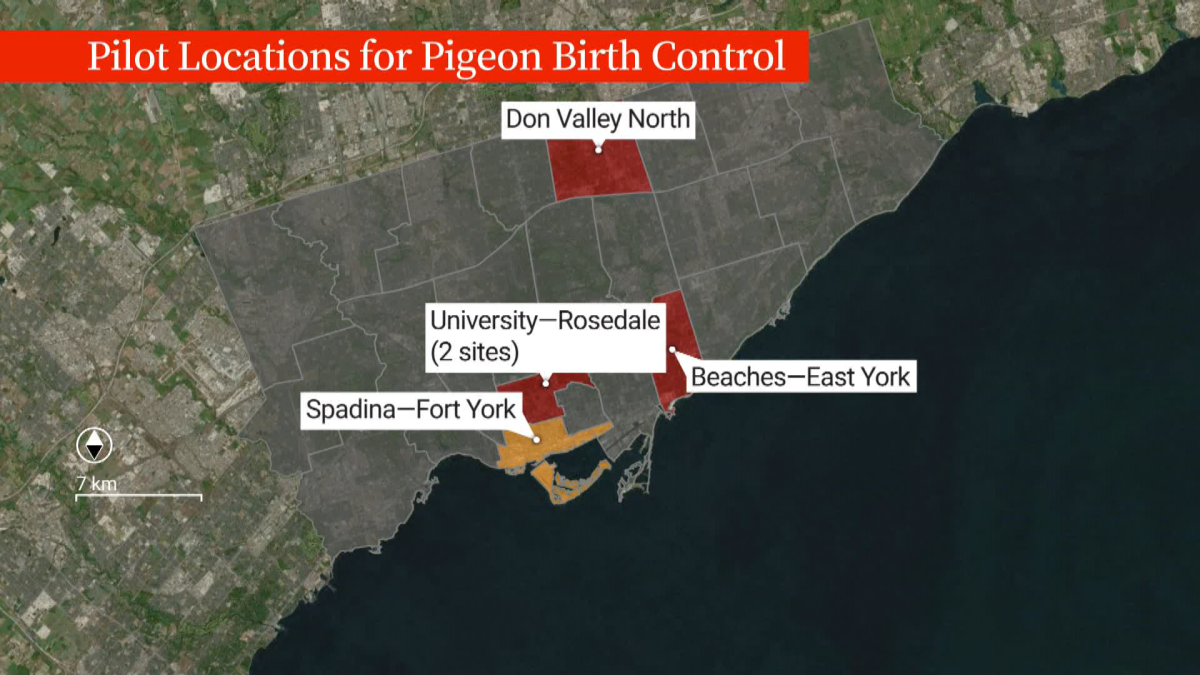Many Toronto residents won’t be taking anymore crap — from pigeons.

“I live here, right across the street, and the pigeons are a nuisance,” said Richard Evans, as he pointed to a condo building at Yonge and Finch.
“They line up on this wire here across Yonge Street, hundreds of them. They have a habit of going to the bathroom on the road and on cars.”
Evans says he hasn’t been ‘lucky enough’ to be used as turd target by pigeons before, but that he hears a lot of concerns from those with balconies on their condos.
These concerns have been heard loud and clear by Esther Attard.
“(Residents) can’t use their outdoor space, well, because of excrement,” said the chief veterinarian and director of animal services for the City of Toronto.
“It can be a public health risk, but that is a low risk. We haven’t had any of these issues.”
In its quest to find solutions, Attard says a humane option stood out: putting pigeons on the pill.
Ovocontrol, produced by Innolytics LLC, is a contraceptive for pigeons that is made into wheat-flour kibble.
Dubbed ‘planned pigeonhood’, the kibble is put into a timed, automatic feeder and placed on several rooftops in urban areas.
Motion-sensing cameras nearby capture the pigeons, or any other creature, that approaches the bait.
In May 2022, the city decided to launch a pilot of the pigeon contraceptive, which Attard says officially got working in May 2023.
For the cost of $24,000 a year, the feeders were placed at three wards: University-Rosedale (includes two sites), Beaches-East York, and Don Valley North.

Get daily National news
A fifth ward — Spadina-Fort York — is expected to be added to the pilot later this month, for an additional $6,000 per year.
“I’m kind of shocked,” Jenn, who loves pigeons, told Global News Toronto.
“I feel like it could be a way to control the reproduction of pigeons. But is it the most ethical?” she added.
“As long as it’s ethical, I guess it’s fine. There’s a lot of pigeons around the area,” said Jane, who works around the Yonge and Finch area.
The pill works by allowing pigeons to still lay eggs that aren’t fertilized. The eggs won’t hatch because there is no embryo inside.
The CEO of the company behind Ovocontrol said the product is far more humane than other tactics used in Toronto, like poison and lethal traps.
“This contraceptive is effective in species that have feathers and lay eggs. so there’s no risk to your pets, your children,” said Erick Wolf.
When asked how he can be sure that the pill isn’t eaten by other birds, Wolf said the larger size of the kibble, and the high location of the feeders, attract only pigeons.
“Smaller birds usually feed from the tree canopy and below,” he said.
The effects of the pill also cannot be transferred to birds of prey, like owls, that eat the pigeons.
The contraceptive works if pigeons ingest it daily. If they stop, Wolf said, they can reproduce normally again.
Attard also noted that, similar to the birth control pill for humans, missing one day won’t make a big difference.
She says the program has already showed some signs of success, because there’s been fewer birds observed on webcam.
But it’s still hard to be sure, so she’s hoping there will be a clearer picture by the spring or summer of this year.
However, the idea has already taken flight with some.
“I am advocating vigorously for it to come to my ward,” Lily Cheng, Willowdale councillor, told Global News.
“For residents who live in condos, their balcony is a really precious outdoor space for them. Unfortunately due to the pigeon problem, many residents are unable to use their outdoor space … it can also be really stressful when crossing the street ”
Evans knows that stress all too well.
Upon learning about the program, he said he’s glad to hear there’s a solution to the poopy problem that doesn’t seem to harm pigeons.
“If it seems to be working, then why not?”












Comments
Want to discuss? Please read our Commenting Policy first.